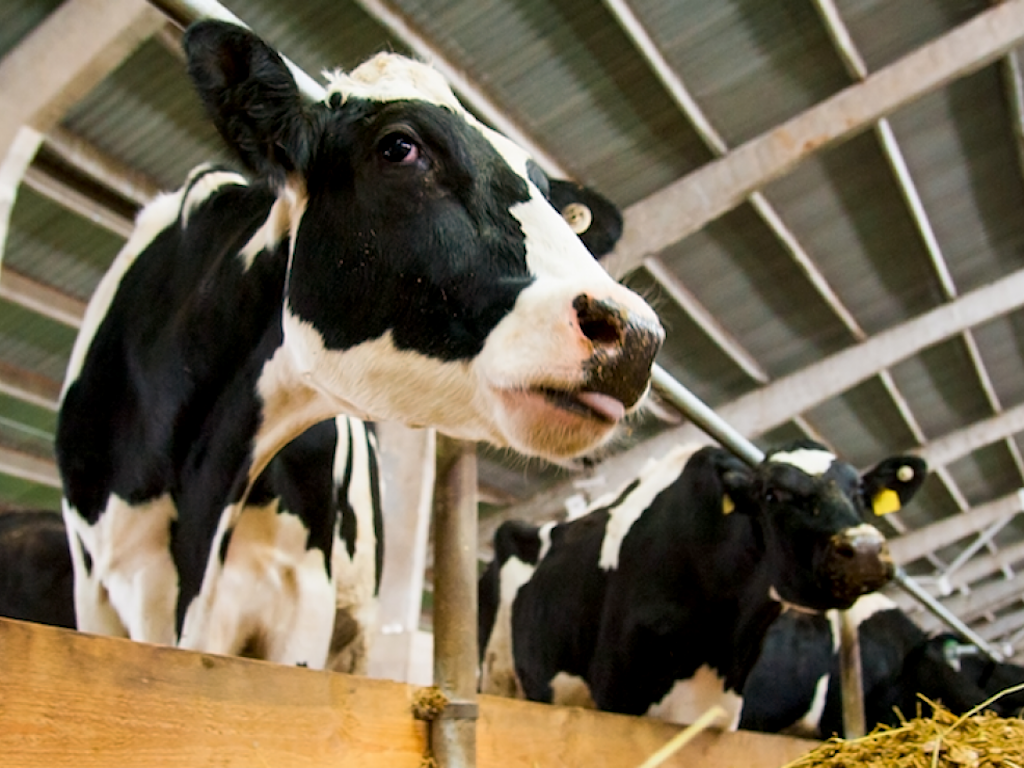3 Mins Read
Borden Dairy, one of America’s largest milk producers and distributors, has just filed for bankruptcy, the second major dairy company in the United States to fall in less than two months. The company, which was founded in 1856, cited the rising costs of raw dairy milk and the industry’s market challenges from the plant-based industry as reasons for its failure. The news reflects the fact that people are opting for dairy-free and plant-based more than ever before amid growing concerns about the environmental impact of our consumption habits.
Founded in 1856 and headquartered in Dallas, Texas, Borden Dairy Company is now the second milk giant in the United States to file for Chapter 11 bankruptcy protection. The dairy producer, which is one of America’s oldest and largest milk producers, cited tumbling milk consumption and the rising price of milk as the reasons for their crippling debt that led to their downfall. Dean Foods, the country’s largest milk producer, filed for bankruptcy last November.
“Despite our numerous achievements during the past 18 months, [Borden Dairy] continues to be impacted by the rising cost of raw milk and market challenges facing the dairy industry. These challenges have contributed to making our current level of debt unsustainable,” said CEO Tony Sarsam in a statement.
Read: It’s Time For Starbucks To Scrap Their Vegan Milk Tax
Referencing “market challenges”, it is clear that the company has been hurt by a broad industry trend that has seen dairy consumption take a major nosedive. Since 2015, there has been a 6% drop in overall milk consumption in the United States. Borden, in their statement about their filing, highlighted that over 2,700 family dairy farms went out of business in 2019, and 94,000 have stopped producing dairy milk since 1992. Dean Foods also noted this, saying that the “continuing declines in consumer milk consumption” was a key reason for their demise.
It isn’t just the American dairy industry going out of business – the same trend is underway in places closer to our doorstep in New Zealand. In late 2019, the New Zealand dairy giant Fonterra, which is the world’s largest dairy exporter, has experienced its second year of losses in a row. Meanwhile, the New Zealand plant-based milk business is booming with sales growing more than 24%, according to global data firm Mintel.
Much of this has been driven by the increasingly eco-conscious consumer base who have become much more aware about the environmental footprint of their choices. In an analysis by non-profit organisation GRAIN, the top 10 of the world’s biggest dairy corporations are responsible for generating enough carbon emissions to match half of France’s total carbon output. In addition to spewing out greenhouse gases, traditional dairy farming depletes the soil of its nutrients, contributes to water pollution, and is an inefficient use of land as well.
With climate change finally climbing towards the top of the agenda with millions of students striking for climate action and scientists reiterating the carbon emissions associated with meat and dairy consumption, more of us are reaching for vegan-friendly and plant-based alternatives than ever before. While dairy takes a tumble, the sales of oat milk have increased by an astonishing 636% between 2018 and 2019. Oatly, the Swedish makers of the plant milk made from milled oats, has not only taken Hong Kong by storm by being served up in the city’s two largest coffee chains Starbucks and Pacific Coffee, but has now expanded into mainland China as well.
The shift away from dairy towards plant-based alternatives is evidently taking place right here in Asia as well. Scientific research consultancy DSM found a surge in popularity of plant milks in Asia-Pacific: 81% of Chinese consumers believe that lactose-free dairy is healthier and easier to digest than traditional dairy products, which is unsurprising given that an estimated 90% of the Asian population are considered lactose intolerant. The study also found that plant alternatives are likely going to experience a boom in other Asian markets including Singapore, Thailand and Malaysia.
Lead image courtesy of SGr / Shutterstock.




